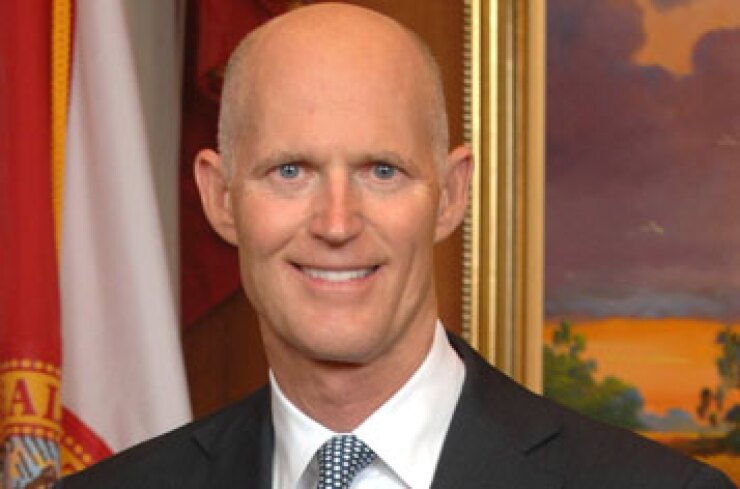
BRADENTON, Fla. - Florida Gov. Rick Scott plans to offer businesses nearly a $1 billion in tax cuts next year if the Legislature agrees with his upcoming budget proposal.
Scott spoke generally about the plan as he toured the state last week, although he is expected to lay out specifics in his 2017 spending plan next month.
Scott said major tax reductions he plans to target are eliminating $770 million in income taxes on manufacturing and retail businesses, eliminating $77 million in taxes on manufacturing machinery and equipment, and cutting $339 million in taxes on commercial leases.
Enterprise Florida, the state's public-private economic development agency, would also get another $250 million under Scott's plan for incentives to lure new businesses to the state.
"Florida is on a roll," said Scott. "We must cut taxes and diversify our economy so Florida can grow even when the national economy is bad."
Scott, a Republican, has encountered skepticism from both parties about his latest tax cut plan.
Democrats have complained that such a plan would cut short needed funding for social programs such as Medicare and mental health.
Some GOP leaders have also expressed doubt that the governor's full tax reduction package can be accomplished without state agency budget cuts.
In response to concern about state agency cuts, Scott's budget director Cynthia Kelly wrote to agency heads last week assuring them that there is plenty of funding to go around.
"There is more than sufficient revenue to fund all of the state's mandatory increases, as well as the governor's priorities for your agencies, the Florida Enterprise Fund, and the proposed $1 billion in tax cuts," Kelly wrote in a Nov. 9 memo.
Florida is expected to have a record $29.8 billion of general revenue available in fiscal 2017, including $1.3 billion in new revenue, she said.
Kelly acknowledged reports that have questioned Scott's ability to balance the proposed tax cuts and the new $250 million Florida Enterprise Fund, while "funding the necessary expenditures of state government."
However, she said that those reports have been based on an apparent misunderstanding of the state's estimated surplus of $635 million. She said the surplus is the projected ending balance after providing $600 million in new funds for Medicaid and other high priority needs, including nearly $1 billion in discretionary spending.
Kelly advised agencies that "the actual allocation of these funds is not yet determined, meaning these funds are available to fund specific agency requests" and the governor's priorities.
In June, Scott signed a $78.2 billion fiscal 2016 budget, the third straight fiscal year of record spending for the Sunshine state.
The current budget relies on cash funding agencies and special projects, and only authorizes $574 million of new bonds for turnpike construction projects.





